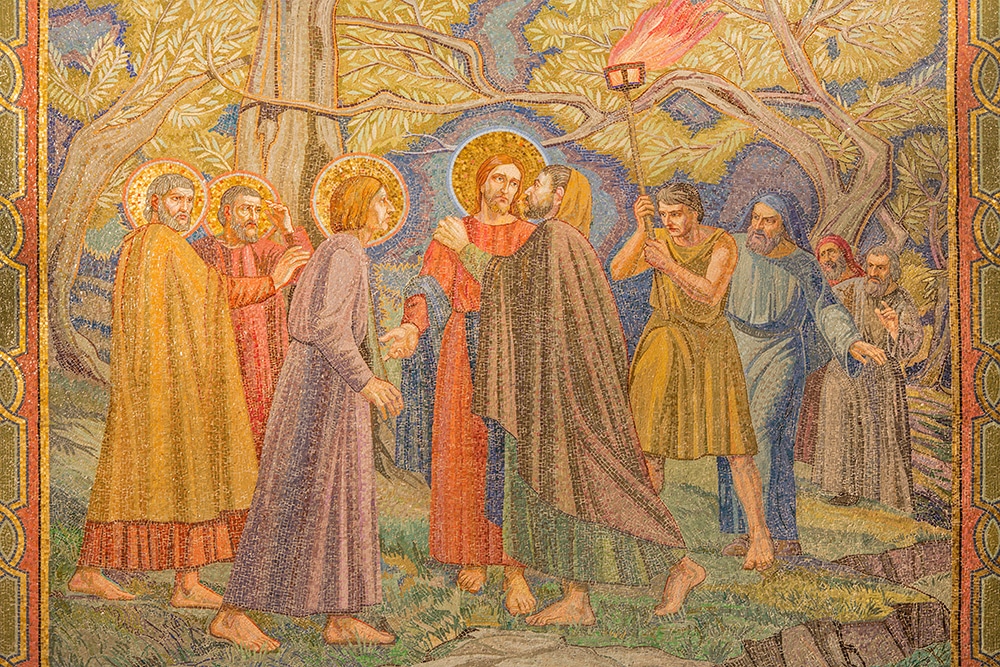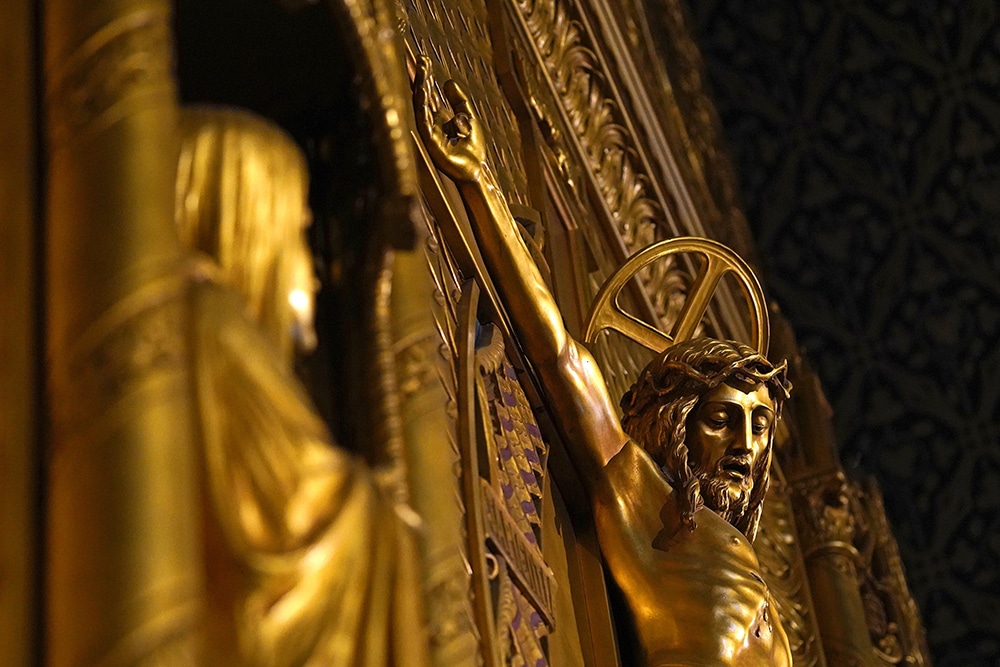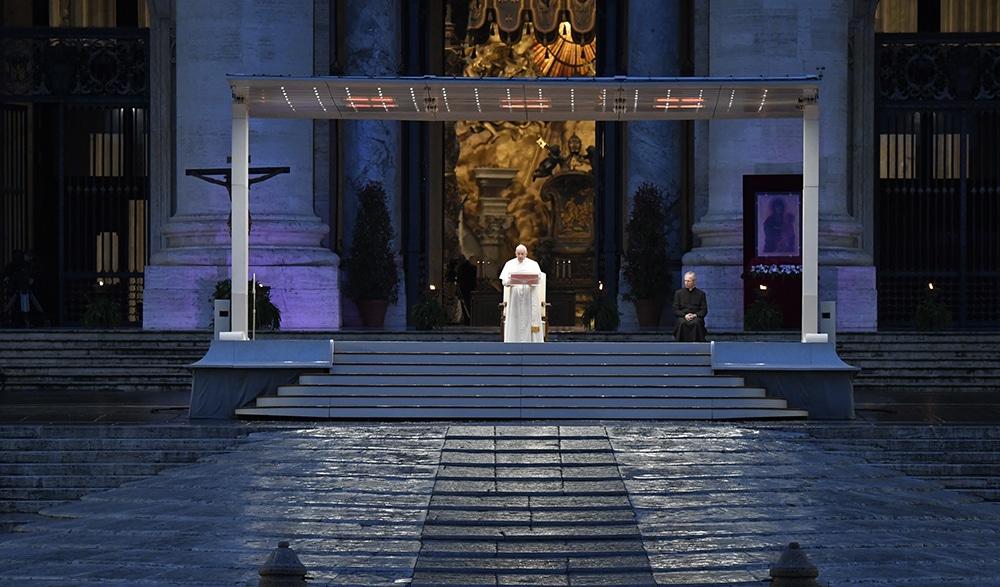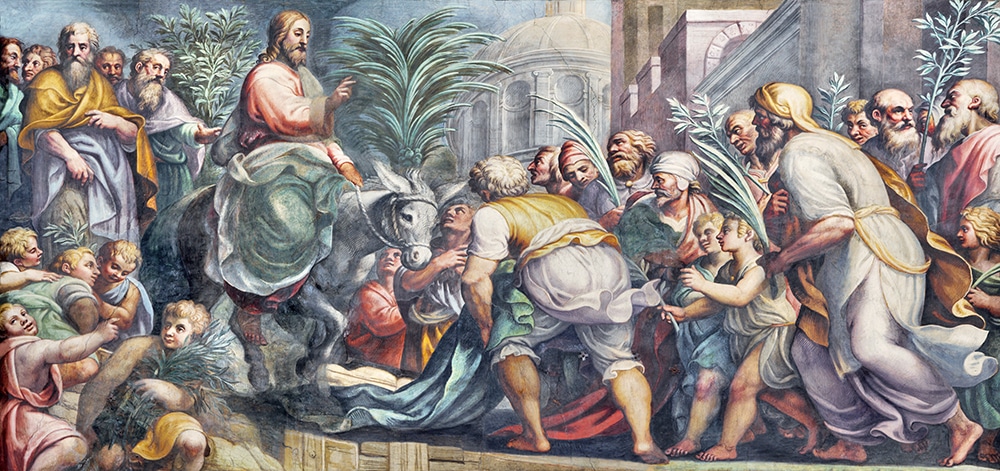 Question: If God knew Judas would betray Jesus, why did God create him, and why did Jesus choose him as an apostle?
Question: If God knew Judas would betray Jesus, why did God create him, and why did Jesus choose him as an apostle?
— Madeline Forsythe, via email
Answer: To be sure, God knows everything that all of us will do before he creates us. It is part of the mystery of his providence that God summons to existence those he knows who will commit acts of evil or who will refuse the Kingdom of God and its values. Part of this has to do with our freedom. If God only created those he knew would obey him and chose the Kingdom, our freedom would be artificial and “front-loaded.”
Another aspect of this is that our lives are not simply about us. We are part of a bigger plan. Our creation by God is not only for us but also for others. Since God can draw good things even from evil actions, even the wicked are mysteriously tied into his providence.
Clearly, however, God does not want or will that any should do evil, but knowing that they will, he can allow it so as to draw forth some greater good. This does not render evil acts good or reduce either the freedom of sinners to act or their guilt. Rather, it illustrates God’s power and authority over all things.
As for Judas, the Lord certainly knew he would betray him (cf. Jn 6:66). Knowing this, the Lord permitted Judas to freely act but did not force him to do so or lock him into some role. He, in his providence, allowed this action to unleash the Passion whereby he would save us.
Miracles today
Question: In the Gospels and the Acts of the Apostles, miracles are many and they occur almost instantly. This seems less common today, and people often have to pray for years to get relief from suffering. Why is this so? What has changed?
— Name, location withheld
Answer: Yes, it does seem that the apostolic age was given certain graces of remarkable healing and deliverance. Both Jesus and the apostles worked many miracles. One theory is that this may have been to “kick-start” the Gospel and provide a kind of audio-visual aid of the spiritual healing that is more important. It would seem that, as the Gospel spread, God wanted faith to rest less on signs and wonders and more on the conviction of things unseen (cf. Heb 11:1; Jn 20:29).
We see in the healings and miracles of the Gospels and in the early Church a kind of deliverance that is compressed in time, but, for most of us, is a deliverance that is extended in time. A leper may have been cleansed by Jesus in a moment, but for us, the leprosy of our sin takes a lot longer to clear up. Jesus or Paul may have driven demons out with a short word, but exorcism for most today involves a much longer process. This is because faith plays an important role in healing and deliverance, and faith takes time to grow. Many people simply seek relief rather than healing. Healing takes courage and faith.
Why God permits some of our afflictions to linger is another mystery of his providence. However, most of us are aware that suffering gives wisdom and increases our faith; it makes us turn to God and it humbles us; it also reminds us that this world is not paradise and increases our longing for heaven. God knows what is best for us, be it a quick healing, or a long process of deliverance.
Priestly prayers
Question: Why does the priest whisper some of the prayers at Mass? Shouldn’t we be able to hear everything?
— Phillip Ross, via email
Answer: There are certain prayers that are supposed to be said by the priest in the low (or secret) voice. Generally, these pertain to his personal preparation for Communion, though two of them pertain to the mixing of water and wine and the presentation of the gifts. The use of the whispered voice has a complex history, and in the traditional Latin Mass nearly the entire Eucharistic prayer is whispered. At one level, this illustrates the sacredness of the texts. But we should also recall that the entire Eucharistic prayer from the Sanctus through the Our Father is addressed to God the Father. While it is helpful for the congregation to hear the prayer, it is not absolutely necessary since the prayer is addressed to God the Father.
Msgr. Charles Pope is the pastor of Holy Comforter-St. Cyprian in Washington, D.C., and writes for the Archdiocese of Washington, D.C. at blog.adw.org. Send questions to msgrpope@osv.com.







